Iran’s Revolutionary Guards seize oil tanker in Persian Gulf – State media
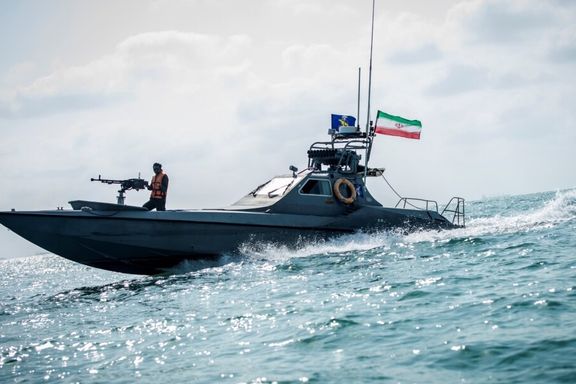
Iran’s Revolutionary Guard naval forces have seized an oil tanker in the Persian Gulf over allegations of fuel smuggling, Iranian state media reported on Tuesday.

Iran’s Revolutionary Guard naval forces have seized an oil tanker in the Persian Gulf over allegations of fuel smuggling, Iranian state media reported on Tuesday.
Fars News Agency said the vessel was intercepted by the Islamic Revolutionary Guard Corps (IRGC) Navy and that six individuals were arrested. It did not specify the nationality of the tanker or those detained. Fars added that 100,000 liters of smuggled fuel were discovered during the inspection of the tanker.
The reported seizure follows an operation last month in which the IRGC detained two foreign tankers allegedly carrying over three million liters of smuggled diesel fuel. Those vessels, intercepted by the IRGC’s Second Naval District, were said to be systematically involved in fuel trafficking and were being moved to the port of Bushehr under judicial orders.
The IRGC regularly announces such actions, saying they are part of efforts to combat fuel smuggling in the Persian Gulf, a vital maritime route through which a significant share of global oil shipments passes.
Iran has previously seized tankers over alleged maritime violations or as retaliatory measures.
In April 2023, the Iranian Navy detained the Advantage Sweet, a Marshall Islands-flagged tanker, in the Gulf of Oman, citing a collision with an Iranian vessel.
In January, Iran seized the St. Nikolas, also Marshall Islands-flagged, in response to a US confiscation of Iranian oil the previous year.
Tensions between Iran and the United States have flared in recent years over a series of maritime incidents in the region, often involving oil shipments and sanctions enforcement.
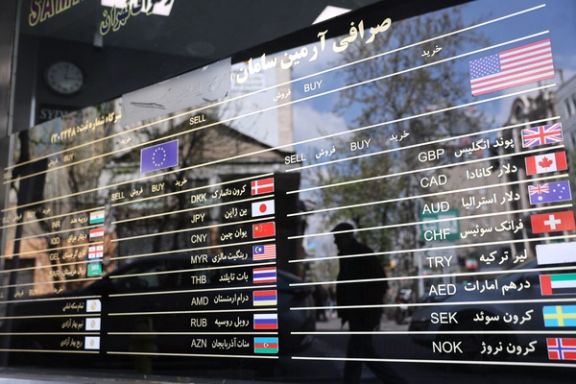
Iran’s currency strengthened modestly on Tuesday, recovering from historic lows as anticipation grew over high-level indirect talks with the United States scheduled to take place this weekend in Oman.
The rial, which hit a record low of 1,050,000 per US dollar last month, bounced back to about 960,000 rials on Tuesday amid growing anticipation of renewed diplomacy between Tehran and Washington.
Iranian government spokesperson Fatemeh Mohajerani confirmed on Tuesday that the talks will be held indirectly, mediated by Oman’s Foreign Minister Badr bin Hamad Al Busaidi. “In the negotiation, what is important for the people and the national interests will be our focus,” she said.
The Iranian delegation will be led by Foreign Minister Abbas Araghchi, while the US side will be represented by Donald Trump’s Mideast envoy, Steve Witkoff, according to Iranian and US media reports.
While US President Donald Trump has said the talks will be direct and at a senior level, Iranian state-affiliated media said otherwise.
Nournews, a site close to Iran’s Supreme National Security Council, described Trump’s comments as part of a “psychological operation” meant to shift blame and shape public perception.
The rial’s gains follow a period of sharp decline, triggered by the absence of negotiations, ongoing US sanctions and Trump's 'maximum pressure' policy on Iran, and escalating regional tensions fueled by Iran's allies.
Inflation in food and other essentials has soared, with local producers citing rising packaging and transport costs as major drivers. Over one third of Iranians now live below the poverty line in the midst of the worst economic crisis since the founding of the Islamic Republic in 1979.
Iran’s currency has halved in value since President Masoud Pezeshkian took office in August.
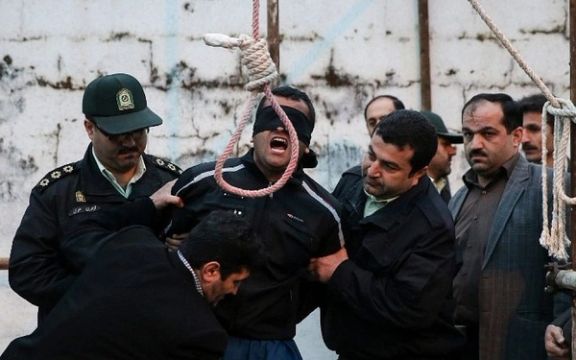
Iran accounted for 64% of all known global executions in 2024, with at least 972 people executed, according to Amnesty International, in what the rights group says is the government's ongoing campaign of mass suppression of dissent.
The latest figures show an increase of 119 executions from the previous year, when 853 executions were recorded.
Globally, the total number of recorded executions reached 1,518 in 2024, the highest figure since 2015, according to Amnesty International’s annual report on the global use of the death penalty released on Tuesday.
Iran, Iraq, and Saudi Arabia were responsible for an overwhelming 91% of the known global executions, a sharp rise from the previous year's 89%.
“Those who dare challenge authorities have faced the most cruel of punishments, particularly in Iran and Saudi Arabia, with the death penalty used to silence those brave enough to speak out,” said Agnès Callamard, Amnesty International’s Secretary General.
Amnesty said that the vast majority of the executions in Iran last year were linked to political repression, including those involved in the Woman Life Freedom protests sparked by the death in custody of 22 year old Mahsa Amini over alleged hijab law violations.
“In 2024, Iran persisted in their use of the death penalty to punish individuals who had challenged the Islamic Republic establishment during the Woman Life Freedom uprising.
"Last year saw two of those people – including a youth with a mental disability – executed in connection with the uprising following unfair trials and torture-tainted ‘confessions’, proving how far the authorities are willing to go to tighten their grip on power,” Callamard added.
According to Amnesty's report, in 2024, Iran executed 30 women, four individuals for crimes committed when they were under 18, and four people in public.
Over 40% of global executions in 2024 were for drug crimes, a practice Amnesty has criticized as unlawful and ineffective, as international human rights law restricts the death penalty to the “most serious crimes.”
“Drug-related executions were prevalent in China, Iran, Saudi Arabia, Singapore and, while no confirmation was possible, likely Viet Nam. In many contexts, sentencing people to death for drug-related offences has been found to disproportionately impact those from disadvantaged backgrounds, while it has no proven effect in reducing drug trafficking,” said Callamard.
Amnesty said that the figures reported in its annual report do not include the thousands of executions believed to have occurred in China, which it named the world’s leading executioner, nor those in North Korea and Vietnam, where the death penalty is also extensively used.
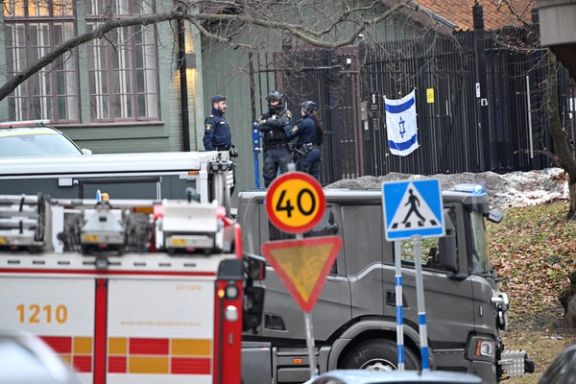
Iran is recruiting Swedish teens as young as 14 on social media to carry out attacks from vandalism to bombings and contract murder against Israelis, an investigation by CNN has found.
Messages such as "we need loads of shooters, jobs in all of Sweden", "shooter needed for Denmark shoot to the head" and offers of "$150,000" are among the trove of discussions uncovered by CNN.
The investigation, alongside the Swedish Security Service (SÄPO), revealed plots including murder and a terror attack on the Israeli embassy in Stockholm.
It also reported that a shooting at the Israeli embassy last year was carried out by a boy of just 14, armed with a 9mm semi-automatic pistol, shooting several shots towards the embassy before being detained.
Taking advantage of legal loopholes, targeting such young teens under 18 years old means the youth are unlikely to serve time.
The 14-year-old in question was not prosecuted because he was under-age. Another 15-year-old involved in the operation was convicted of a serious weapons offense and ordered to spend 11 months in a juvenile care home.
Speaking to CNN, the SÄPO said the attempted attacks were among several last year targeting the Israeli embassy in Stockholm by gangs acting on behalf of Iran.
Social media has been manipulated in the process of recruitment as children are easily accessible across a range of platforms.
Last year, two rival Swedish gangs, Foxtrot and Rumba, plotted several attacks targeting the Israeli embassy in Stockholm on behalf of Iran.
Fredrik Hallström, head of operations at SÄPO, told CNN, “It becomes a problem for us when it's another state like Iran that uses these kids as a proxy ... Organized crime in Sweden right now is a huge vulnerability that is being used by state actors."
He said it has stepped up in the wake of the Gaza war, sparked by the Iran-backed Hamas invasion of Israel, which later saw Iran's allies in Yemen, Syria, Lebanon and Iraq launch attacks on the Jewish state in allegiance with the group designated a terrorist organization by countries such as the UK and US.
“After the 7th of October, we saw this type of modus operandi,” Hallström added.
On Sunday, Israel's Minister of Defense, Israel Katz, revealed documents showing that back in 2021, Hamas had requested Iranian funding for the attack which would transpire on October 7, 2023, killing 1,200 Israelis and seeing over 250 more taken hostage.
A transcript of conversations found in the tunnels of senior Hamas figures in Gaza, he said proves a direct connection between Iran and assassinated Hamas leader Yahya Sinwar and his assassinated military leader Muhammad Deif, as part of Iran's support for Hamas' plan to destroy Israel.
"In the document, they demand that the commander of the Quds Force of the Revolutionary Guards transfer $500 million for the destruction of the State of Israel," he said.
"The head of the Palestinian branch of the Revolutionary Guards, Izadi, accepted the request and replied that Iran – despite its difficult economic situation – and the plight of the Iranian population, will continue to Money for Hamas, because the struggle against Israel and the US is the top priority of the Iranian regime."
In the year before the Gaza war, Israel's chief of Mossad, David Barnea, said 27 Iran-backed plots had been foiled in Europe, Africa, the Far East and South America.
But this has ramped up since the Gaza war, dozens foiled globally, in addition to plots foiled inside the Jewish state, including an attempted attack on the Israeli embassy in Azerbaijan and most recently, the attempted murder of a rabbi in Azerbaijan
Ahead of the Jewish holiday of passover next week, Israel's National Security Council has warned the Israeli public to remain vigilant when traveling abroad amid concerns that Iran, Hamas, Hezbollah and global Jihadist groups will continue to actively advance attacks against Jews and Israelis worldwide.
It named Iran as "the main instigator of global terrorism against Israeli and Jewish targets around the world, both directly and through its proxies."
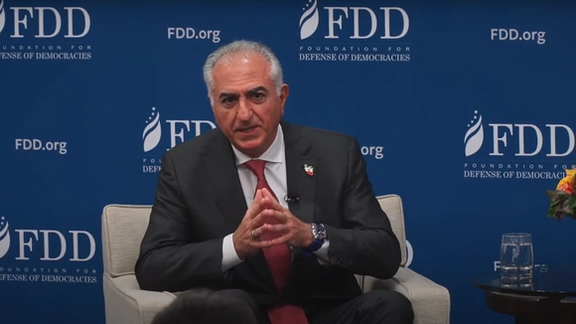
Iranian exiled prince Reza Pahlavi on Monday argued against the use of US military force on Tehran, saying the Iranian people are the only ones who can overthrow the clerical establishment that toppled his father's rule in 1979.
"We're not denying the fact that having to act militarily is always an option," Pahlavi told a Washington DC event hosted by the Foundation for Defense of Democracies (FDD) and National Union for Democracy in Iran (NUFDI).
"But I think it will be historically criminal not to give the Iranian people a chance to make that happen before you have to resort to those less likable scenarios," he added.
US President Donald Trump has extended an offer to Iran for direct negotiations aimed at addressing concerns over its nuclear program. But the overture was accompanied by a stern warning: failure to engage would result in bombing "the likes of which they (Iran) have never seen before."
Pahlavi added that moving straight from diplomacy to military action would be ill advised. "Once again, you're throwing the people of Iran under the bus, which will only add salt to injury."
In response to Trump's bombing threat, Iran elevated its military readiness and cautioned neighboring countries against supporting any US military actions, warning of repercussions for neighbors who might facilitate an attack.
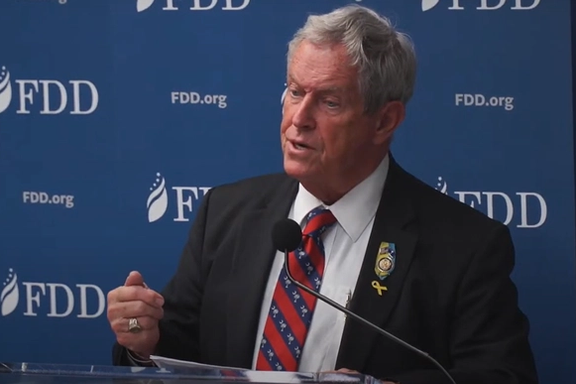
Addressing the same event, South Carolina Congressman Joe Wilson said "preventing Iran's regime from acquiring a nuclear weapon, which is existential for the United States and for American families and has been cited about the missile programs, is the foremost urgency."
He referred to the recent downfall of Iran's staunch ally Syrian President Bashar al-Assad, adding that he is "very hopeful that the success of the people of Syria should be the equivalent for the Middle East of the fall of the Berlin Wall, for the Europe and Central Asia for ultimately liberation of countries around the world."
Last week, Wilson introduced a new bipartisan bill pushing for measures to empower Iranians to help overthrow the government in favor of a democratic alternative including facilitating greater internet access and funding for dissidents.
The Maximum Support Act, introduced by Wilson and Jimmy Panetta (D-CA), would require the administration to develop an aggressive interagency strategy aimed at backing Iranian dissidents who would be pivotal in the process.
The legislation outlines a set of initiatives including facilitating secure communications for activists, appointing a special representative for coordinating support efforts and forming multi-agency teams to counter online censorship and government surveillance.
It also calls for offering safe channels for defection by Iranian officials and utilizing information shared by defectors.
“The Iranian regime will fall sooner rather than later,” Wilson said after introducing the bill.

Israeli Prime Minister Benjamin Netanyahu will seek to persuade the Trump administration during a visit to Washington to push for the complete dismantling of Iran’s uranium enrichment program, diplomatic sources in the Middle East told Iran International.
Israel believes that if the Islamic Republic is allowed to retain even a small part of its nuclear program, the sources added, it could rapidly resume enrichment once Trump’s presidency ends or anytime it deems conditions favorable.
The diplomats told Iran International that Israel assesses that Tehran’s sole aim in pursuing talks with the United States is to preserve its enrichment program.
The Israeli prime minister is meeting the US president at the White House, with Iran's nuclear issue among the key focuses of their negotiations, according to Netanyahu's office.
Netanyahu will not advise American officials against engaging in negotiations with Iran, the diplomats told Iran International, but he will urge them to make any talks conditional on the enrichment program's total end.
Earlier in the day, Axios reported that Netanyahu believes the chances of a nuclear deal between Tehran and Washington are extremely low but will present to Trump today how "a good deal should look like".
"Netanyahu wants the Libya model. Full dismantling of Iran's nuclear program", the report said, citing an Israeli official referring to a 2003 decision by Libya's leader Muammar Qadaffi to surrender weapons of mass destruction.
The veteran autocrat was deposed and killed in a Western-backed uprising in 2011.
Iran's Foreign Minister Abbas Araghchi said on Sunday that Washington can only dream of an agreement with Iran similar to the 2003 deal with Libya.
His comments came after Republican Senator Tom Cotton said the deal President Trump wants with Iran would be one that neutralizes Tehran's threat completely.
"He prefers a deal like Libya cut with the United States in 2003," Cotton said in an interview posted on X.